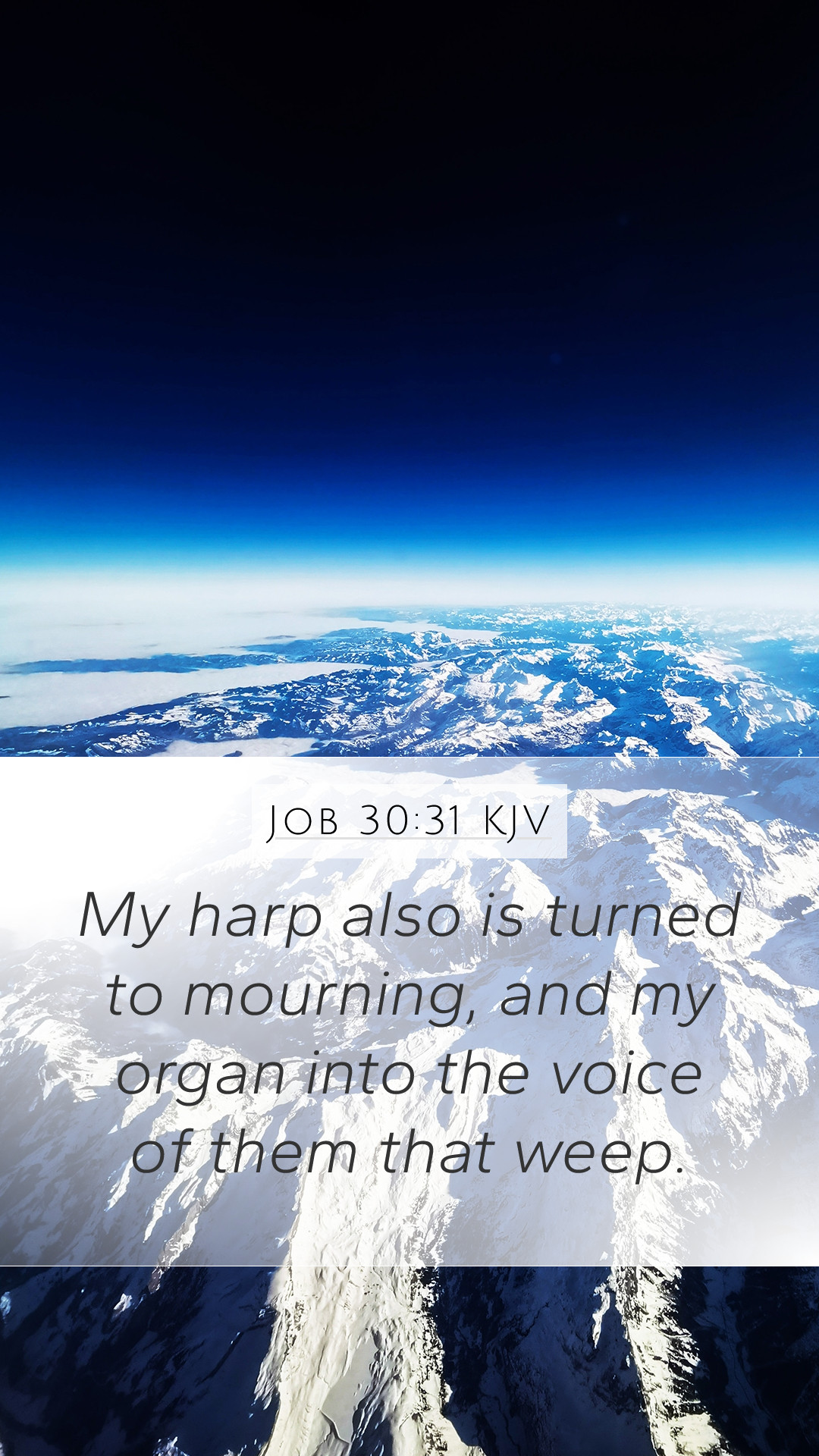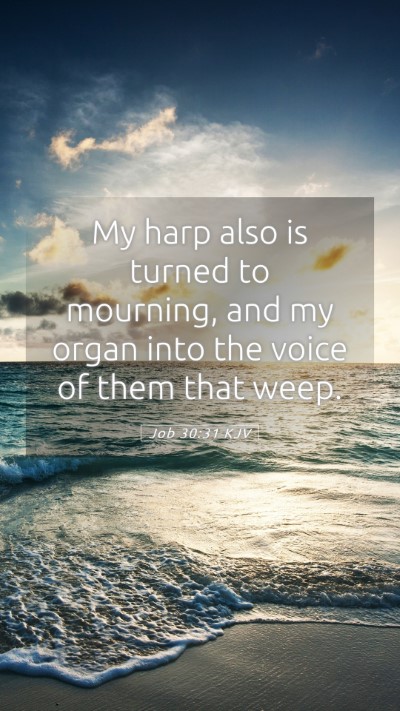Understanding Job 30:31 – An In-Depth Bible Verse Analysis
Job 30:31 (KJV): "My harp also is turned to mourning, and my organ into the voice of them that weep."
In this verse, Job expresses deep sorrow and lamentation, utilizing profound imagery of musical instruments to symbolize his emotional state. The transition from joyful sounds to those of mourning reflects the severe trials and tribulations he has experienced. This verse serves as a poignant reminder of the emotional highs and lows found within the human experience and the power music holds in expressing those feelings.
Commentary Insights on Job 30:31
-
Matthew Henry:
Henry suggests that Job's reference to the harp and organ illustrates the profound shift in his life. Once filled with joy and praise, his music now reflects his grief. This highlights not just Job’s personal desolation but serves as a broader commentary on the trials of life that can turn joy into sorrow.
-
Albert Barnes:
Barnes views the mention of instruments as symbolic of what Job has lost. Where once there were melodies of joy, there are now only notes of lament. This captures the essence of despair, illustrating how external circumstances can impact one’s internal state of being.
-
Adam Clarke:
Clarke emphasizes the metaphorical implications of music in this verse. The harp and organ, which once played to celebrate life’s blessings, now resonate with mourning. This transformation signifies a deep sense of loss and emotional anguish that can come with suffering.
Significance of Job 30:31
This verse delivers a profound message about suffering and the human condition. It reflects on how life can drastically change, turning joy into sorrow. Job's lament through his music serves as a universal reminder that everyone will experience moments of grief and heartache.
Related Bible Verses
- Psalms 30:5: "For his anger endureth but a moment; in his favor is life: weeping may endure for a night, but joy cometh in the morning."
- Psalms 42:7: "Deep calleth unto deep at the noise of thy waterspouts: all thy waves and thy billows are gone over me."
- Ecclesiastes 3:4: "A time to weep, and a time to laugh; a time to mourn, and a time to dance."
Application of Job 30:31 in Daily Life
Understanding this verse is crucial for those going through difficult times. It encourages the expression of grief while also offering a glimpse of hope that joy can be restored, even after periods of sorrow.
Bible Study Insights
For individuals engaged in Bible study groups or those utilizing Bible study tools, this verse can serve as a focal point for discussions on the nature of suffering and the interplay between joy and sorrow. Incorporating Bible study guides can deepen the exploration of thematic elements within Job’s story.
Conclusion
Job 30:31 encapsulates the essence of human emotion during trials, skillfully expressing the painful transformation of joy to sorrow. Through its musical metaphor, the verse invites readers to reflect on the complexities of life while providing encouragement for eventual healing and restoration.


